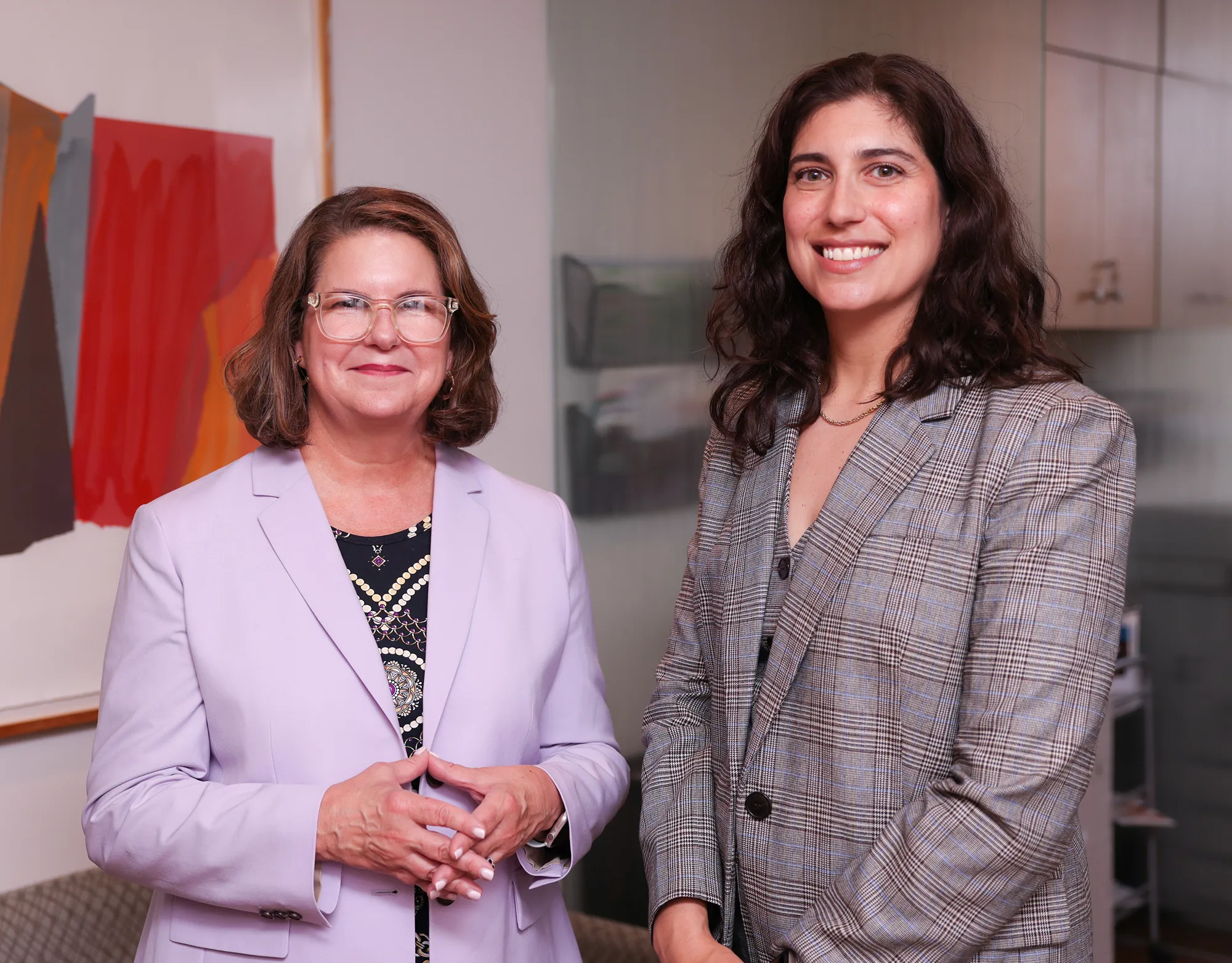MENOPAUSE CARE
Delivering Comprehensive Menopause Care
hile the transition to menopause is an inevitable part of the life course for women and people assigned female at birth, it has historically been overlooked in healthcare. Menopause, or the cessation of the menstrual cycle, marks the onset of hormonal changes which can have an impact on overall health and wellbeing. To support patients through this transition, the Division of Integrated Women’s Health in the Department of Obstetrics and Gynecology at Columbia University Irving Medical Center has launched a menopause care program.
Under the leadership of Division Chief Dr. Mary Rosser, the Division of Integrated Women’s Health provides individualized healthcare services to women across their lifespan, with a specialized focus on care coordination. Grounded in a comprehensive approach to care, the division offers services across seven broad dimensions: general health (including gynecologic care), heart health, mental health, neurocognitive health, nutrition and exercise, genetic screening, and sexual health.
In 2024, the Division of Integrated Women’s Health launched a menopause care program, offering services specifically designed to help patients navigate menopause and the cessation of the menstrual cycle. Leveraging the same comprehensive, individualized approach to care as the division at large, this program seeks to raise awareness and educate patients on the natural progressions of menopause.

The menopause care program offers a host of specialized services for patients which include menopause and hormone therapy to treat disruptive symptoms and prevent bone loss, nonhormonal therapy, sexual health services, and preventative health services. Given that menopause may bring about emotional and psychological challenges, patients of the program can also be connected to the Women’s Mental Health program in the Department of Obstetrics and Gynecology for support.
In May 2024, Dr. Mary Rosser led a menopause management symposium for a clinical audience, targeting physicians, fellows, residents, medical students, nurses and others with an interest in women’s health. This symposium, entitled “Empowering Change: New Insights and Strategies for the Management of Menopause”, offered healthcare providers insights and strategies for the treatment of patients through a health equity lens. With over 500 registrants from around the country, the event provided much-needed menopause management education and started a critical dialogue to reduce ill-informed stigmas surrounding menopause.
Looking ahead, the menopause care program at Columbia will continue its work to answer an unmet healthcare need for many patients by offering care through the menopause transition and beyond. Reflecting on the impact of this initiative, Dr. Mary Rosser shares, “programs like this provide valuable support, information, and treatment options to help individuals navigate the physical and emotional changes associated with the menopause transition.”
This year, Dr. Rosser will be serving as a Chair of the American College of Obstetricians and Gynecologists District II, where she will continue to drive the conversation around caring for women across the lifecourse.
